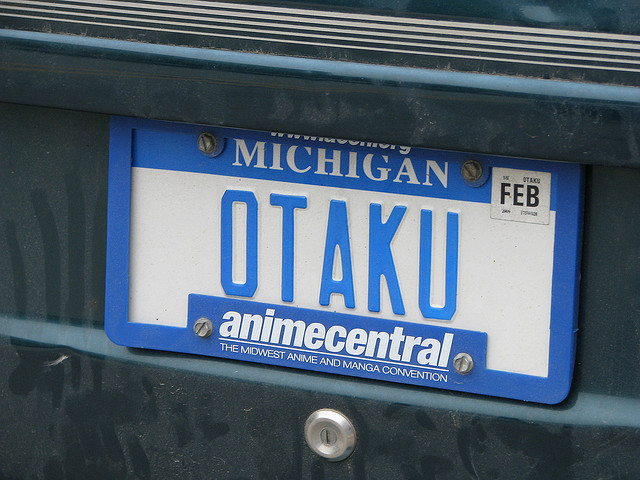Social media has made me change my mind about a lot of things.
It taught me that words I thought were harmless to say, like “lame” and “derp,” actually hurt a lot of people’s feelings. It helped me help my mom, who is a college psychology professor, create an informative lecture on gender dysphoria, something we weren’t knowledgeable about previously.
But most of all, it has taught me that the world is a lot bigger than my American education would have had me believe, with lots of diverse viewpoints and feelings.
As a person with a generally carefree life, I find myself stumbling over people’s toes on the Internet sometimes, saying or doing things that aren’t OK. And 99% of the time, as soon as I learn that something offends people, I stop doing it. The end.
But after Miyazaki’s tirade recently, I learned that “otaku” is a word that offends some people. And yet, I’m still using the term now.
It’s not just that it’s in the name of my blog, the book I’m about to publish, and my manifesto. I could change those. In the end, I decided that I won’t stop using it because I don’t believe it’s hurtful to people when I do.
When I discovered the loan word “otaku,” my thought was, “Finally! A word that conveys my meaning perfectly.” Sure, I still have to define it, but it’s worth it. Usually, when we say people are “geeks,” it’s usually about Star Trek or something. But you can be an otaku about absolutely anything. I may talk about anime most of the time, but my favorite reporting is when I’m writing about passionate people and their communities, whether I share their interests or not.
The main argument against somebody like me using “otaku” is about cultural appropriation. Western people have taken a lot of things already, the argument goes, so they shouldn’t be taking language, too. However, I think loan words are more of a give-and-take between cultures.
We’ve taken “Zen,” “tycoon,” and “otaku” from Japanese, granted they’ve lost a little of their meaning and spelling. Meanwhile in Japan, the word “viking” means “buffet” and the word “mansion” refers to what we’d call a condominium. And of course, this is to say nothing of English adoption of words like “Schadenfreude” and “Déjà vu.” And it’d be insular to say that people in other countries aren’t aware of these melding usages, or the way they sometimes change in meaning from nation to nation.
Otaku is a complicated word. It began as a self-referential term for fans with passionate interests, and is still primarily used that way. It had its share of bad publicity in the ’90s after a man who owned an extensive collection of video tapes—a few of which were anime—committed a series of grisly murders. The media dubbed him “The Otaku Murderer” and the resulting fracas caused a moral panic against otaku. (It’s just like how in the US, some politicians blame video games for violent crime, though crime happens so frequently that we’ve never had an iconic killer to call “The Video Game Murderer.”)
So yes, “otaku” hasn’t always been a positive word in Japan. But there, and in America, and in plenty of other countries like the Phillipines, it is used by fans and to refer to fans.
As Jennifu writes on Twitter:
@laureninspace I feel people took the revelation “otaku isn’t a great thing in Japan!” too far/overcompensated by thinking it’s a swearword.
— despair@hiki.otagirl (@zetsubouzhainu) February 5, 2014
And as Tony writes, anime characters use the term innocently enough, showing that anime producers doubt their viewers will find it offensive.
@laureninspace There was a scene in Fullmetal Alchemist where Ed calls Windy “engineer otaku” too! If only ppl paid attention to that!
— Tony Yao (@MangaTherapy) February 5, 2014
Mark pointed out that the same moral panic occurred in America around the same time, only there it was about Dungeons and Dragons:
@Kal5_ Same with Dungeons & Dragons: 1970’s it’s cool 1980’s news says all murdering satanists 1990 make feature films 2000s celebs play W/E
— MarkD555 (@Kal5_) February 5, 2014
But after all is said and done, I do still call myself the Otaku Journalist. I clearly have a vested interest in continuing to use the word. So don’t take my opinion as fact. Whether you continue to use it or not is a decision each fan will have to make on their own.
(Photo by HelloMokona.)

